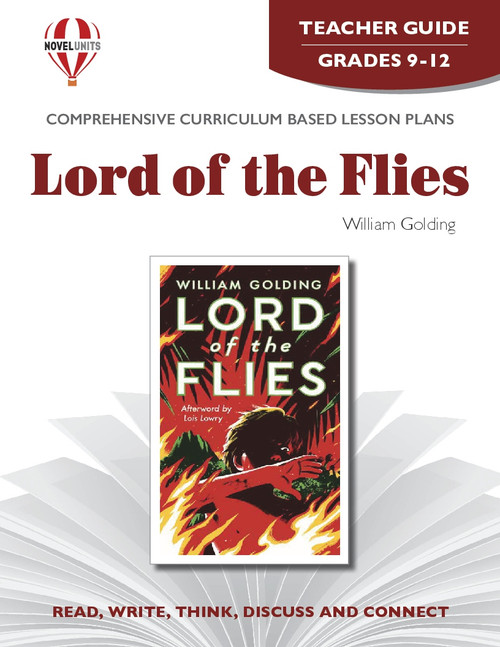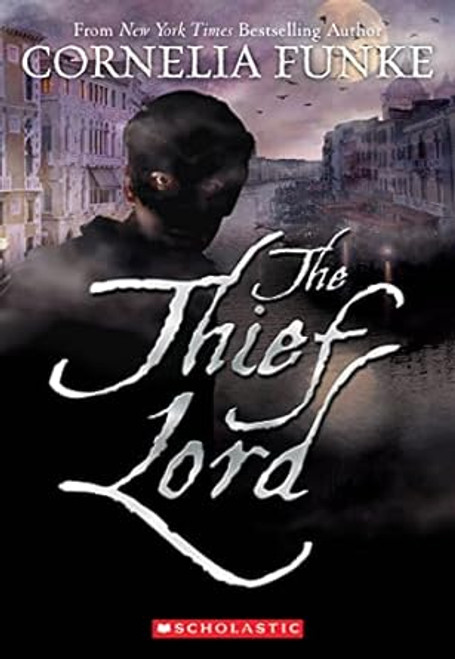Product Overview
Lord Of The Flies: Civilization vs. Human Nature
This story's exploration of human nature, society, and morality provides valuable lessons that are relevant to students both inside and outside the classroom.
Ordering Books for Lord of the Flies by William Golding
No order minimum; you can order just one copy if that's all you need! :-) Order your class set of books for Lord of the Flies now, and take advantage of our bulk order discounts!
About the Book Lord of the Flies |
Set against the backdrop of an unspecified war, Lord of the Flies begins with a group of British boys stranded on a deserted island after a plane crash. With no adults to guide them, the boys initially try to establish order and create a semblance of society. However, as the veneer of civilization fades away, their descent into savagery reveals the darker aspects of human nature. The story revolves around key characters such as Ralph, Piggy, Jack, and Simon. Ralph, the elected leader, represents order and democracy. Piggy, his intellectual sidekick, symbolizes reason and rationality. Jack, the antagonist, embodies the primal instincts and desire for power, while Simon, the moral compass, stands for innate goodness and spirituality. Initially, the boys attempt to create a structured society with rules and responsibilities. They designate Ralph as the leader and set about building shelters, maintaining a signal fire, and hunting for food. However, as fear of the mythical "beast" grows, Jack's savage instincts begin to dominate. The boys split into factions, leading to violent conflicts and the ultimate breakdown of their social order. The novel culminates in a tragic and harrowing climax, highlighting the fragility of civilization.
|
Themes in the book Lord of the Flies |
Civilization vs. Savagery: One of the central themes of Lord of the Flies is the conflict between civilization and savagery. Golding explores the thin veneer that separates civilized behavior from primal instincts. The boys' gradual descent into chaos illustrates how societal norms can quickly erode when individuals are removed from structured environments. Loss of Innocence: The novel also addresses the theme of the loss of innocence. The boys' transformation from innocent schoolchildren to ruthless savages underscores the corrupting influence of power and fear. This theme serves as a poignant commentary on the inherent darkness within human nature. Fear and Its Consequences: Fear plays a pivotal role in Lord of the Flies. The boys' fear of the unknown, personified by the "beast," drives them to irrational behavior and violence. Golding examines how fear can manipulate and control individuals, leading to destructive consequences. Leadership and Power: Leadership and power dynamics are explored through the characters of Ralph and Jack. Ralph's democratic leadership contrasts with Jack's authoritarian rule. The struggle for power and control highlights the complexities of leadership and the potential for corruption.
|
Activity Ideas for the book Lord of the Flies |
Character Analysis Essays: Encourage students to write character analysis essays focusing on key figures such as Ralph, Piggy, Jack, and Simon. Ask them to explore the characters' motivations, development, and symbolic significance. This activity helps students develop critical thinking skills and deepen their understanding of the novel's themes. Modern-Day Parallels: Have students draw parallels between the events in Lord of the Flies and contemporary society. Discuss how the themes of power, fear, and the loss of innocence are relevant today. This activity promotes critical reflection and encourages students to connect literature to real-world issues. Debate and Discussion: Organize debates and discussions on key themes and ethical dilemmas presented in the novel. Topics could include the nature of good and evil, the role of leadership, and the impact of fear. Encourage students to support their arguments with evidence from the text, promoting analytical thinking and public speaking skills. Symbolism Scavenger Hunt: Create a symbolism scavenger hunt where students identify and analyze symbols within the novel, such as the conch shell, Piggy's glasses, and the "beast." Have them explain the significance of each symbol and its contribution to the overall message of the book. This activity enhances students' interpretive skills and appreciation for literary devices. Role-Playing Scenarios: Create role-playing scenarios where students take on the roles of characters from the novel and enact key scenes. This activity helps students empathize with the characters, understand their motivations, and explore the moral dilemmas they face. Collaborative Annotations: Use digital platforms to create collaborative annotation projects where students can annotate passages from the novel, highlighting literary devices, themes, and character development. This activity fosters collaborative learning and enhances students' analytical skills.
|

Customer Service
- We guarantee you'll have the best customer service experience ever with Teacher's Pet Publications.
- We are here to help make things as easy as possible for you!
- Your information is secure. We don't keep your card number on file anywhere, and we don't sell, rent, or give away your personal information.
- We treat you as we would like to be treated as a customer!
- Need help? Have questions? We're always happy to assist you! Contact Us











